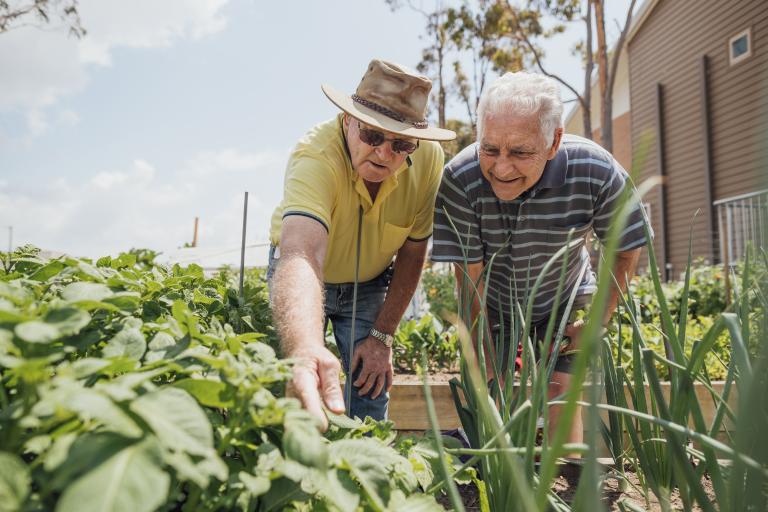
Preparing for extreme heat
On this page
- Encourage the older person to use a fan or air-conditioner.
- Check the air-conditioner is on ‘cool’ before turning it on.
- Look into energy bill concessions. Find out more at www.concessions.tas.gov.au or call 1300 135 513.
- Plan to go to an air-conditioned local library or shopping centre.
- Use a cool, wet cloth to wipe their arms and neck.
- Put their feet in a bowl of cool water.
- Make water or cordial ice cubes to suck when hot.
- Put a bowl of ice cubes in front of a fan to create a cool breeze.
- Advise them to sleep with just a sheet over them.
Eating and drinking during extreme heat
- An older person may not always be able to tell when they are thirsty.
- Encourage them to drink water often.
- Check with their doctor about how much they should drink.
- Tell them to avoid tea, coffee or alcohol.
- Ensure they always have a bottle of water to avoid becoming dehydrated.
- Encourage them to eat smaller meals more often during hot weather.
- Use stoves or ovens less. This keeps the temperature cooler in their home. It also reduces the risk of accidentally leaving them on.
- Ensure that food needing refrigeration is not left out.
Clothing and personal aids during extreme heat
- Older people have reduced circulation.
- They sweat less.
- Encourage them to wear lightweight, light-coloured and loose-fitting clothing.
- Natural fibres like cotton or linen are best. Avoid synthetic or nylon fabrics.
- Make sure they wear broad-spectrum sunscreen (minimum SPF30+).
- They should wear it even if they only go outside for a short time.
- Apply it under the sleeves and collar of a blouse or shirt to cover the neck.
- Also apply it on their legs and feet if they are wearing shorts or sandals.
- Make sure they wear a hat that shades their face, neck and ears.
- Always wear sunglasses outside.
- Take off sunglasses before going inside to prevent an accident.
- Pause inside for a few minutes to help eyes adjust from the bright sunlight.
- Check their wheelchair, walker and other metal equipment does not become hot to avoid a burn.
Taking medicines during extreme heat
- Ensure older people continue to take prescribed medicines during extreme heat.
- Some medicines can make them more prone to sunburn and heat stress.
- Take extra care to watch for signs they are becoming affected by the heat.
- Speak to a doctor or a pharmacist if you need advice on their medicines.
Resources for residential aged care facilities and community home care providers
Brochures, checklists and factsheets
- Heatwave ready Tasmania: Resources for residential aged care facilities in Tasmania
- Advice for older people
- Caring for an older person during extreme heat
